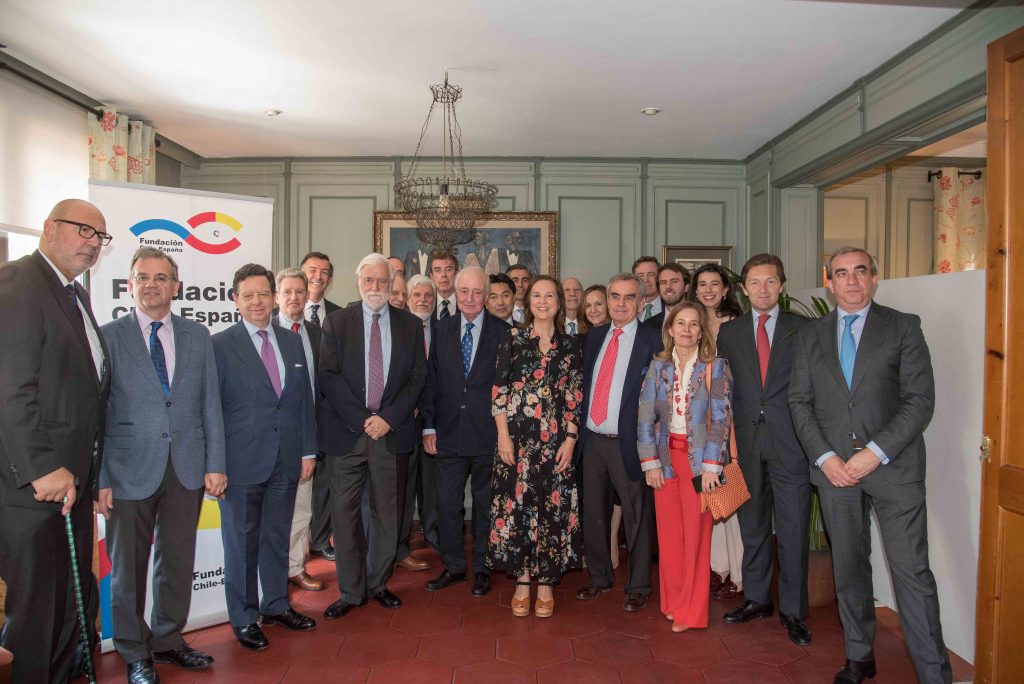
07/06/2019
Eduardo Aninat, Kreab Senior Advisor, presents Chile as an open country committed to foreign trade
The renowned Chilean economist and former finance minister, Eduardo Aninat, on the 5th of June in Madrid, was the protagonist of a lunch-discussion, organised by the Chile-Spain Foundation with support from Kreab, where more than 25 Spanish companies already in the Chilean market or interested in investing in it were present.
During the meeting, Aninat reviewed the current economic and political situation in Chile, a successful country that has made great progress in recent years, although it still has a long way to go to reach the most developed OECD countries.
The new government of Sebastián Piñera, which aims to grow at 4%, is backing an open country committed to progress, democracy, economic growth and social development. With these figures the country would continue to lead the growth in Latin America and exceed the average global growth.
In the economic area, there are challenges that are currently being worked on, such as recovering the investment rate, recovering national savings and improving productivity and employment. To this effect, a range of opportunities open up for Spanish companies already present in Chile and for those that have not yet taken the step of settling in the Andean country. “Chile prides itself on having an open and stable economic model that favours trade and investment, which is respected and praised in the world. It has solid institutions, although we must continue investment in quality infrastructure in regions, in the development of digital transformation and connectivity in the country and in quality education,” said Aninat.
On the other hand, Aninat spoke about the reforms that are being promoted by the government with a view to transforming Chile into a developed country. The first is the tax reform, which aims to strengthen the capacity to grow, create jobs and invest, and promote a labour modernisation to generate more and better jobs; the second, the pension reform, which aims to modify the pension system in the face of an aging population and low birth rates; and finally, the labour reform, which allows for improvement in adaptability and labour flexibility and thus improves the quality of Chilean life.
